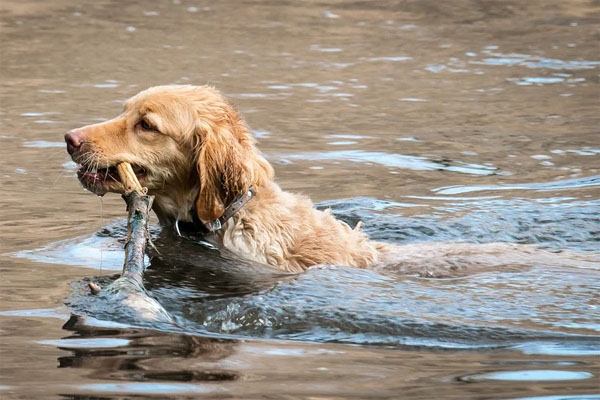Travel Pages
RomWell Travel Advisory
10 Pitfalls in Retriever Training, Part I
By Mike Stewart - Wildrose Kennels - Home of Drake the DU Dog
Many of the problems that owner-trainers experience when training retrievers could be easily minimized if addressed early in training. It is much better to not condition in a problem that you must later train out. Here are some of the top pitfalls trainers face:
1. Long Training Session
Too much enthusiasm from the trainer often proves detrimental to young pups. As a result of lengthy, repetitive training sessions, the pup simply loses focus, becomes distracted, and finally burns out. Pups under six months have very short attention spans. Sessions should not exceed 5 minutes and should include only a few repetitions-any more than that and they will lose focus. It is not essential to train every day. A few minutes twice a day is more effective than an hour every day. Often a break of a few days in training produces surprising results.
Pups between 6 and 12 months must maintain a positive attitude toward training. Pups this age will benefit most from sessions no longer than 20 minutes. Never continue to the point of boredom. If things are going well and the session is complete, there is no need to push pups past 2 to 3 repetitions. Always stop on a positive, successful exercise or response. A good duck dog can be trained with the investment of 10 minutes a day three to four times per week if one adheres to an effective training plan.
2. Premature Hunting
Nothing can be gained by exposing pups to hunting situations under the age of 10 months, whether it's upland game or waterfowl shooting. Taking a 4 to 5 month old pup on a dove or duck shoot for "experience" is similar to taking a first grade child to high school for "experience." What positive effects could possibly be achieved? Yet the downside potential is huge: gun shy, water shy, bird shy, even physical injury.
Shyness can result from the exposure to aggressive dogs on the hunt, fatigue, frigid water, etc. What is the up side? Be patient. Let the pup mature and do your homework building strong basic gundog skills. No dog should be exposed to a hunting situation until all basic gundog skills are entrenched, excluding blinds. Don't rush the process.
3. Waiting to Steady
People are fearful that if they attempt to steady their pups early in basic gundog training, the dog will lose enthusiasm and drive. Not true if properly accomplished with gentle methods. Steadiness to shot and fall is one of the most important lessons a young dog will learn. Any properly bred retriever can mark and retrieve with very little formal training; it's knowing when not to retrieve that takes the conditioning. Start early denying pup retrieves. Pick up 50% of all bumpers and later 50-60% of all the downed birds on your pup's first few hunts. Condition patience from the beginning.
4. Too Many Meaningless Marks
After a pup is enthusiastic about early retrieve (no more than 2 to 3 per session), there is little point to continuing meaningless, repetitive, hand-thrown retrieves in elementary sessions. Once the pup dashes out, picks the mark and returns back to the handler, nothing more is necessary. Marks now must teach something-falls in long grass, in water, over water onto land or in high crops.
Marks can be used to teach doubles, lengthen the dog's retrieving distance, or to exercise watching the sky. Excessive marking can be counterproductive by unsteadying the pup and promoting independence rather than interdependent relationships. Additionally, marking to improve memory is actually is the poorest of methods. Place more emphasis in the early steps of training on steadiness and memory development rather than marks.
5. Setting Pups Up to Fail
Nothing is learned from failure in the dog world. It is vital that pups succeed every time in training to develop confidence in you and in themselves. Don't ask young dogs to exceed their capabilities. Nothing succeeds like success. If necessary, walk out and help locate the fall yourself, shorten distances, simplify the concept or re-visit basic core skills. Train-don't test.
Teach every skill within a concept and then link them together. Dogs learn from association established through consistent repetition. In effect we are establishing a learning chain through causal relationships. Be careful not to circumvent this process. Think "win, win"…how can the exercise be set up to enhance the possibilities of success?
Article Source: Ducks Unlimited Inc.
Ducks Unlimited conserves, restores and manages wetlands and associated habitats for North America's waterfowl. These habitats also benefit other wildlife and people. Visit their web site at www.ducks.org to learn more, support their mission or to find more info.




